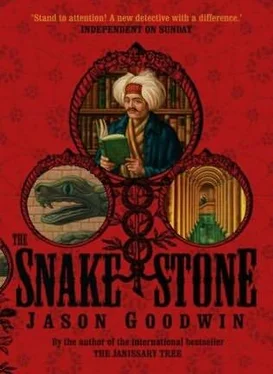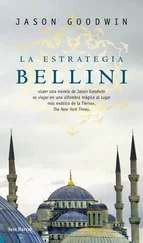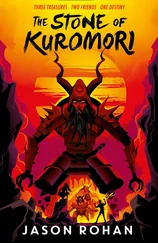Jason Goodwin - The snake stone
Здесь есть возможность читать онлайн «Jason Goodwin - The snake stone» весь текст электронной книги совершенно бесплатно (целиком полную версию без сокращений). В некоторых случаях можно слушать аудио, скачать через торрент в формате fb2 и присутствует краткое содержание. Жанр: Исторический детектив, на английском языке. Описание произведения, (предисловие) а так же отзывы посетителей доступны на портале библиотеки ЛибКат.
- Название:The snake stone
- Автор:
- Жанр:
- Год:неизвестен
- ISBN:нет данных
- Рейтинг книги:4 / 5. Голосов: 1
-
Избранное:Добавить в избранное
- Отзывы:
-
Ваша оценка:
- 80
- 1
- 2
- 3
- 4
- 5
The snake stone: краткое содержание, описание и аннотация
Предлагаем к чтению аннотацию, описание, краткое содержание или предисловие (зависит от того, что написал сам автор книги «The snake stone»). Если вы не нашли необходимую информацию о книге — напишите в комментариях, мы постараемся отыскать её.
The snake stone — читать онлайн бесплатно полную книгу (весь текст) целиком
Ниже представлен текст книги, разбитый по страницам. Система сохранения места последней прочитанной страницы, позволяет с удобством читать онлайн бесплатно книгу «The snake stone», без необходимости каждый раз заново искать на чём Вы остановились. Поставьте закладку, и сможете в любой момент перейти на страницу, на которой закончили чтение.
Интервал:
Закладка:
The door opened.
“Yashim efendi,” he said.
The old woman nodded. “He just came in, I think, efendi. Please, mind your head.”
Alexander Mavrogordato ducked, though not quite deeply enough, and stepped down into the little hall, rubbing his head. “Where do I find him?”
The old woman pointed up the stairs. Mavrogordato climbed heavily. On the landing he paused, then pushed open the door.
Yashim looked up in surprise.
“You mind if I come in?” The young man’s tone was aggrieved, as if he expected a rebuff.
“Not at all,” Yashim replied pleasantly. “You are almost in already.”
“My mother told me where to find you,” Alexander Mavrogordato said, advancing into the room. He looked around and went over without stopping to the stove, putting his hands on the table, fingering the pots. Then he wheeled around and came over to the books, absently running his hands across their spines.
“Mother says your job’s done.” He reached into his pocket and drew out a purse. “Here.”
He threw it across to Yashim, who was sitting on the divan, watching the performance with interest. Yashim put up an arm and closed his fingers on the purse. A Phanariot purse: heavy and musical.
“Your mother is too kind,” he said. “What exactly is she paying me for?”
The young man whipped round. “It doesn’t matter. She thinks she overreacted.”
Yashim lobbed the purse back. Mavrogordato was taken by surprise, but he caught it. Then he fumbled the catch and the money fell onto the floor.
“In which case, there’s no fee.”
Mavrogordato stirred the purse with his foot. “I don’t think you get it, do you? My mother doesn’t want to know about-about anything.”
“I see. We never talked. She never scolded me for being late, or asked why I didn’t wear a fez, or told me not to smoke.”
“That’s right,” the young man replied guardedly.
“Oddly enough, do you know the only thing she really never did? She never discussed a fee with me. Now take your money, Monsieur Mavrogordato, before I start remembering that you were ever here.”
Yashim didn’t move from the divan. The young man kicked viciously at the purse, so that it thudded against the wall.
Then he flung out of the door, slamming it behind him.
The trouble with children who were told exactly what and what not to do, Yashim reflected, is that they grow up unable to think for themselves.
26
The night watchman who patrolled the streets of Pera was used to the barking of the dogs. As he approached in the faint gleam of his own swaying lamp, the mangy animals would raise themselves from the shadows, from the doorways and the curbs, and their ritual protest carried on long after he had passed by. It was a matter of form, without moment: an unthinking ceremony that had long ago ceased to have any meaning for either the dogs or the watchman.
So it was that as he turned into the road which led past the French embassy, he was surprised by silence. For a few moments he stood still, scratching his head, while the lantern bobbed about at the end of a stick and swung a feeble yellow gleam this way and that across the unpaved road.
Then, through the silence, he heard a soft sucking and tearing sound. He hoisted his lantern and peered forward into the dark.
27
Istanbul was not an early-rising city; only the devout, stirred by their muezzins, noticed the dawn as it began to creep from the mountains behind Uskudar. Dr. Millingen, who was about to be summoned by the French embassy, was asleep, breathing heavily and dreaming of Athens. Nearby, in the Polish residency, Stanislaw Palewski snored among his pillows, dressed in a voluminous old dressing gown. Along the Bosphorus the sultan slept, his cheek flattened against the breast of a Circassian odalisque; she was stolidly resisting the temptation to fall asleep because, if she had a single fault, it was in snoring with her mouth open. Up the Golden Horn, Madame Mavrogordato was also awake, making an effort to interpret her husband’s night fidgets. Yashim slept silently, half dressed, covered in an old cloak. Malakian was asleep; George the costermonger drifting somewhere between the two states.
Auguste Boyer, charge d’affaires at the French embassy, was awake, dressed, and leaning from a ground-floor window into the courtyard, wiping a trail of vomit off his chin with a lace-edged handkerchief. The vomit was thin and smelled of bile and coffee. He retched again; his stomach turned over, and a silver thread of drool sank from his lips onto the dry cobbles below the window.
“Put back the sheet,” he said faintly. There was a sound of the sheet being drawn up, and Boyer turned with the handkerchief to his mouth. “Send for Dr. Millingen. And you may bring-bring the bag to my office.”
Keeping his eyes firmly fixed on the door and the handkerchief in place, he staggered from the room. The middle-aged orderly glanced down once at the bloodstained sheet, watching the stains become shiny again from contact with the dead man’s wounds, then bent down stiffly and picked up the leather bag. That Boyer was only a kid, he was thinking. He should have been there with the emperor, at Waterloo. La Gloire! Not glory, no. But an acquaintance with the dead.
He closed the door, crossed himself with a reflex movement, and went to find the footman.
28
A pair of white cotton gloves slapped down onto the table, setting the coffee cup ringing. Yashim put out a hand and glanced up to see Palewski standing over him.
“My dear friend! Have a seat.” Yashim beckoned to the cafe proprietor. “A coffee. Make it two.” He frowned at Palewski. “Are you ill?”
“I’ve felt better,” the ambassador said in a low voice that was almost a whisper. “Are both these coffees mine? Good.”
It would be an exaggeration to say that the color returned to Palewski’s cheeks as he drank his coffee, for they were bloodless at any time; but when he next spoke his voice was firmer.
“Odd news, Yashim. I’ve just come from the French embassy. The night watch found a body last night, almost on their doorstep. It’s one of theirs.”
“How extraordinary.”
Palewski turned his head and made a signal to the cafe owner. “I–I’m afraid you won’t like this. It’s Lefevre.”
Yashim stared at him blankly. “It couldn’t be.”
Palewski shrugged. “I’m afraid so. The embassy need your help in dealing with the Porte,” he said. “Lefevre was a French citizen, so he’s technically their responsibility. But the authorities have to be informed, and the ambassador’s concerned that none of the embassy dragomen know the ropes. He doesn’t want too many people involved, either. The body is a mess, apparently.”
“I saw Lefevre leave,” Yashim insisted.
Palewski ignored him. “Dr. Millingen will be holding an inquest, I expect. Who he saw, where he went, that sort of thing. They’ll want you there for that. Maybe you’re the last person who saw him alive.”
“He took a caique straight to the ship,” Yashim said.
Palewski shrugged. “Nothing was very straight about Lefevre. The French ambassador thinks I know my way about. He called me over at some unearthly hour this morning for advice. I suggested you.”
Yashim said slowly: “I owe Lefevre something. He was weak, but-”
Palewski nodded. “He trusted you. I’m sorry, Yash.”
29
Auguste Boyer’s impression that the Turks were an impassive race was confirmed by Yashim’s stony inspection of what remained of Lefevre’s body. The face had been washed, and now presented a more terrible sight than it had at first, covered with blood and gobbets of torn flesh. The Turk, Boyer noticed, studied it with a patience that was almost obscene; at one point he seized the head by the ears and turned it so that the horribly exposed eyeballs fixed on Boyer himself, over a grinning row of bloodstained teeth. When Boyer turned back, Yashim was examining the body’s hands and feet, which seemed lifelike compared to the ravaged corpse to which they had been attached. It was the orderly, by a gesture, who suggested that Yashim might like to view the entire corpse. Even then, examining the appalling carnage of the wound, he only pursed his lips.
Читать дальшеИнтервал:
Закладка:
Похожие книги на «The snake stone»
Представляем Вашему вниманию похожие книги на «The snake stone» списком для выбора. Мы отобрали схожую по названию и смыслу литературу в надежде предоставить читателям больше вариантов отыскать новые, интересные, ещё непрочитанные произведения.
Обсуждение, отзывы о книге «The snake stone» и просто собственные мнения читателей. Оставьте ваши комментарии, напишите, что Вы думаете о произведении, его смысле или главных героях. Укажите что конкретно понравилось, а что нет, и почему Вы так считаете.












